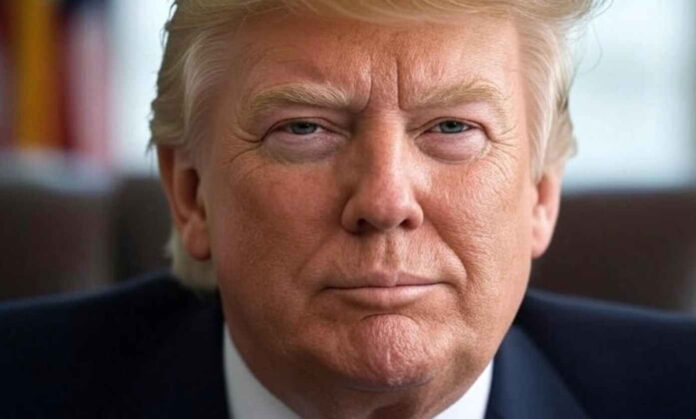- President Trump demanded that Microsoft fire Lisa Monaco, citing national security concerns over her past government roles.
- Monaco, a former senior national security aide and Deputy Attorney General, now leads Microsoft’s global affairs.
- Far-right activist Laura Loomer supported Trump’s call and criticized Microsoft CEO Satya Nadella in controversial remarks.
- Microsoft has not commented publicly, while the controversy fuels debates over politics in corporate hiring.
President Donald Trump has ignited a new political battle with Microsoft, demanding that the tech giant remove Lisa Monaco from her post as the company’s president of global affairs. Trump made the demand in a pointed post on Truth Social on Friday, claiming Monaco’s presence at Microsoft poses a serious national security risk.
The former president argued that Monaco’s past roles in the Obama and Biden administrations give her access to information that he considers too sensitive for someone now working in the private sector. His message to Microsoft was direct: “It is my opinion that Microsoft should immediately terminate the employment of Lisa Monaco.”
Trump’s comments have already drawn sharp reactions across the political and tech worlds, with some calling it an unnecessary political intrusion into corporate decisions and others agreeing that her previous government service warrants deeper scrutiny.
Trump’s Reasons for Targeting Lisa Monaco
Lisa Monaco, who joined Microsoft in May, oversees the company’s global relations, cybersecurity policies, and partnerships with governments worldwide. Her arrival was seen as a strategic hire for Microsoft, especially as the company continues to expand its cybersecurity operations and deepen cooperation with international agencies.
However, Trump focused on her past in public service, especially her time as a senior national security aide under President Barack Obama and later as Deputy Attorney General under President Joe Biden. Trump referred to both leaders in disparaging terms, suggesting that Monaco had been part of what he calls the “weaponization” of the Justice Department.
Earlier this year, Trump revoked Monaco’s security clearance through an order that also stripped security access from President Biden, Vice President Kamala Harris, former Secretary of State Hillary Clinton, and members of the Biden family. In his post, he described Monaco’s access to Microsoft’s internal and potentially government-related information as “unacceptable.”
Political Allies Join the Criticism
Trump’s post quickly gained traction among his supporters. Far-right activist and frequent Trump ally Laura Loomer amplified the criticism. She has previously attacked Monaco’s hiring by Microsoft, claiming it reflects misplaced priorities by the company’s leadership.
In a post on X, Loomer went further by taking aim at Microsoft CEO Satya Nadella, making comments that many have condemned as inappropriate and discriminatory. She accused Nadella, who was born in India, of “disgraceful scammer behavior” and said his decision to hire Monaco was part of a “globalist agenda.”
On Friday, after Trump’s statement, Loomer reposted his words and added her own call for the president to cancel all government contracts with Microsoft. Her remarks, while controversial, highlight the growing tension between the current administration and several major technology companies.
Microsoft Remains Silent Amid the Controversy
Microsoft has chosen to remain silent. A company spokesperson declined to comment on the issue, and Monaco herself has not made any public statements.
Observers note that Microsoft’s choice of Monaco earlier this year reflected its effort to bring in experienced leaders with deep understanding of security policy and international relations.
Her track record includes managing critical national security issues and working with allies worldwide, which many believe makes her well-suited to handle Microsoft’s increasing responsibilities in protecting digital infrastructure.
Despite that, the controversy sparked by Trump’s remarks shows how deeply politics can influence public perception of corporate leadership decisions. The clash also underscores the sensitive balance that tech companies must maintain when hiring former government officials, especially those who have been involved in contentious political periods.
Not the First Time Trump Has Targeted Tech Leaders
This is not the first clash between Trump and executives in the technology sector since his return to office. Earlier this year, Trump called for the immediate resignation of Intel’s president, Lip-Bu Tan, over what he described as conflicts of interest.
Interestingly, Trump later changed his tone toward Tan after Intel reached an agreement that gave the government a 10 percent stake in exchange for funding that had been set aside during the Biden administration. Following that deal, Trump called Tan a “highly respected chief executive officer,” showing his willingness to reverse positions based on evolving political and business developments.
This pattern suggests that Trump’s criticism of Monaco might not necessarily be permanent but could depend on future events involving Microsoft’s cooperation with the government.
A Growing Rift Between Politics and Big Tech
The tension between political leaders and technology companies has been mounting for years, with debates over data privacy, online speech, and national security at the center. Trump’s call to fire Monaco is the latest example of how personal political rivalries can spill into corporate boardrooms.
Microsoft’s leadership now finds itself at the heart of a debate that extends far beyond the hiring of a single executive. The question of whether former government officials should hold senior positions in companies with significant access to sensitive data is likely to remain a prominent topic in both political and business circles.
The situation also highlights the challenges faced by global companies that must balance their internal hiring decisions with the political climates of the countries they operate in. For Microsoft, the controversy may prompt new discussions about how best to protect its relationships with both the government and the public.
Follow TechBSB For More Updates

